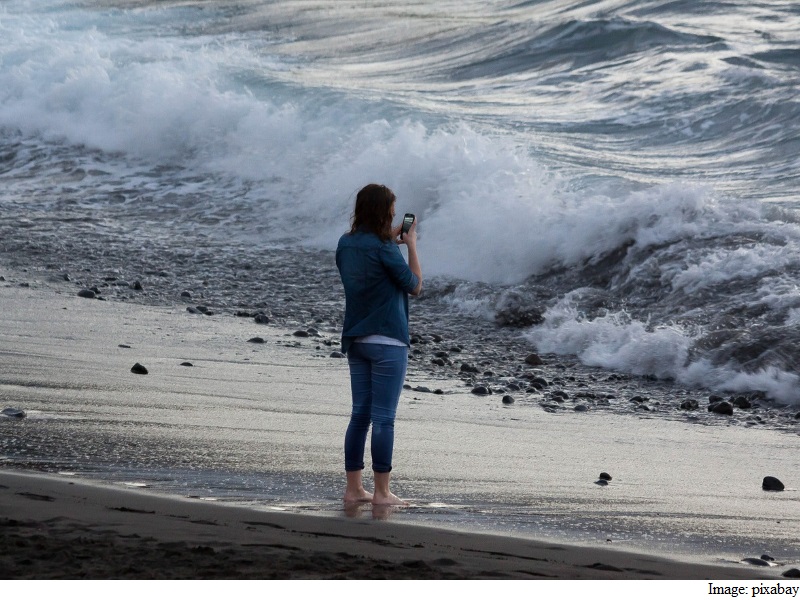- Home
- Science
- Science News
- New Smartphone App May Alleviate Motion Sickness Symptoms
New Smartphone App May Alleviate Motion Sickness Symptoms

The cause of motion sickness is still a mystery but a popular theory among scientists says it is to do with confusing messages received by our brains from both our ears and eyes, when we are moving.
Thanks to a new treatment being developed by scientists, the misery of motion sickness could be ended within five to ten years, researchers said.
Around three in ten people experience hard-to-bear motion sickness symptoms, such as dizziness, severe nausea, cold sweats, and more, they said.
Research from Imperial College London shows that a mild electrical current applied to the scalp can dampen responses in an area of the brain that is responsible for processing motion signals.
Doing this helps the brain reduce the impact of the confusing inputs it is receiving and so prevents the problem that causes the symptoms of motion sickness.
This technique offers a safe and effective intervention that is likely to be available for anyone to buy, in the future, researchers said.
"We are confident that within five to ten years people will be able to walk into the chemist and buy an anti-seasickness device. It may be something like a tens machine that is used for back pain," said Dr Qadeer Arshad from the Department of Medicine at Imperial College London, who led the research.
"We hope it might even integrate with a mobile phone, which would be able to deliver the small amount of electricity required via the headphone jack. In either case, you would temporarily attach small electrodes to your scalp before travelling - on a cross channel ferry, for example," said Arshad.
In the study, volunteers wore electrodes on their heads for about 10 minutes. They were then asked to sit in a motorised rotating chair that also tilts to simulate the motions that tend to make people sick on boats or roller-coasters.
Following the treatment, they were less likely to feel nauseous and they recovered more quickly.
"The problem with treatments for motion sickness is that the effective ones are usually tablets that also make people drowsy," said Professor Michael Gresty from Imperial College who collaborated in this study and is a world expert on motion sickness.
The research was published in the journal Neurology.
Catch the latest from the Consumer Electronics Show on Gadgets 360, at our CES 2026 hub.
Related Stories
- Samsung Galaxy Unpacked 2025
- ChatGPT
- Redmi Note 14 Pro+
- iPhone 16
- Apple Vision Pro
- Oneplus 12
- OnePlus Nord CE 3 Lite 5G
- iPhone 13
- Xiaomi 14 Pro
- Oppo Find N3
- Tecno Spark Go (2023)
- Realme V30
- Best Phones Under 25000
- Samsung Galaxy S24 Series
- Cryptocurrency
- iQoo 12
- Samsung Galaxy S24 Ultra
- Giottus
- Samsung Galaxy Z Flip 5
- Apple 'Scary Fast'
- Housefull 5
- GoPro Hero 12 Black Review
- Invincible Season 2
- JioGlass
- HD Ready TV
- Laptop Under 50000
- Smartwatch Under 10000
- Latest Mobile Phones
- Compare Phones
- Tecno Spark Go 3
- iQOO Z11 Turbo
- OPPO A6c
- Samsung Galaxy A07 5G
- Vivo Y500i
- OnePlus Turbo 6V
- OnePlus Turbo 6
- Itel Zeno 20 Max
- Lenovo Yoga Slim 7x (2025)
- Lenovo Yoga Slim 7a
- Lenovo Idea Tab Plus
- Realme Pad 3
- Garmin Quatix 8 Pro
- NoiseFit Pro 6R
- Haier H5E Series
- Acerpure Nitro Z Series 100-inch QLED TV
- Asus ROG Ally
- Nintendo Switch Lite
- Haier 1.6 Ton 5 Star Inverter Split AC (HSU19G-MZAID5BN-INV)
- Haier 1.6 Ton 5 Star Inverter Split AC (HSU19G-MZAIM5BN-INV)

















